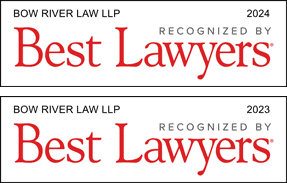- Home
- Services
- Constructive Dismissal
- COVID-19
- Discrimination / Human Rights
- Employee Sued by Employer
- Employment Contracts: Drafting / Review / Negotiation
- Employment Policy Drafting / Review
- Fiduciary Obligations
- Harassment / Bullying
- Independent Contractors
- Just Cause For Termination
- Lay-Offs
- Non-Competition / Non-Solicitation
- Professional Regulation
- Severance Review / Negotiation
- Union / Labour Law
- Workplace Investigations
- Wrongful Dismissal / Unjust Dismissal
- About
- Our Team
- Blog
- Call Now: 587-391-7601
- Contact Us
I’ll Avoid Your Employees If You Avoid Mine

The Competition Act is a Federal statute with the purpose of encouraging competition, efficiency and adaptability in the economy by ensuring small and mid-sized businesses have equitable opportunities in the economy. In June 2022 the Federal Government passed the Budget Implementation Act, 2022, which amended the Competition Act, in particular adding s.45 (1.1), to address “naked restraints” on competition by adding to the existing provisions for criminal conspiracy. The amendment to the Competition Act came into force on June 23, 2023, following a period of consultation in early 2023. The purpose of these new provisions is to deter certain agreements between two or more employers that undermine competition and unfairly restrict employee compensation, benefits and opportunities. The two prohibited activities affecting employment law in Canada are wage fixing agreements and no-poaching agreements. Consequences for contravening s.45 (1.1) are significant with the possibility of up to 14 years imprisonment, a fine, or both as determined on sentencing. Additional consequences include possible civil lawsuits by private parties claiming loss or damages as a result of the breach of these new provisions.
Although these changes are to a federal statute, they affect employers in all provinces, including Alberta.
Analysis
Subsection 45 (1.1) of the Competition Act reads as follows:
45 (1.1) Every person who is an employer commits an offence who, with another employer who is not affiliated with that person, conspires, agrees or arranges
- to fix, maintain, decrease or control salaries, wages or terms and conditions of employment; or
- to not solicit or hire each other’s employees.
The Competition Bureau of Canada, an independent law enforcement agency, released its “Enforcement Guidelines on wage-fixing and no poaching agreements” (link) to facilitate the implementation and assimilation of the new provisions into practice. The Enforcement Guidelines are not binding on prosecutors, employers or on parties to a civil claim, but serve as a road map in navigating this new law.
The following is a review of the Enforcement Guidelines.
Applies June 23, 2023 onward
Subsection 45 (1.1) applies to agreements between employers after June 23, 2023, but also includes older agreements that are reaffirmed after June 23, 2023. Older, stagnant agreements that are not acted upon by employers after June 23, 2023 would not likely attract prosecution.
Mutuality
Agreements must be mutual between two or more parties. Unilateral agreements would not satisfy the requisite “meeting of minds”. For no-poaching agreements, the employers must mutually agree not to hire each other’s employees, in contrast to a one-way agreement where only one employer agrees not to hire the other’s employees. Secondment arrangements would be an example of this.
Affiliated Companies Do Not Apply/Unaffiliated Companies Do Not Need to be Competitors
Agreements between affiliated corporate parties under the same parent company would not violate s.45 (1.1). Although unaffiliated businesses do not need to be “competitors” to be prohibited from wage-fixing and no-poaching agreements, unaffiliated but collaborating employers should avoid sharing personal or sensitive employee information, as this exchange suggests an intention to fix wages or terms of employment.
Who is an Employer and When is there an Employment Relationship?
An “employer” extends to directors, officers, agents or employees of the business that enter into agreements on behalf of the business. The existence of an employment relationship will be assessed in reference to the circumstances and applicable laws. Being an independent contractor may still be considered an employment relationship, depending on the circumstances.
Wage Fixing Isn’t limited to Wages, and Extends to other Terms of Employment
“Fix, maintain, decrease or control the terms and conditions of employment” includes restraint agreements relating to employee responsibility, benefits, allowances, working hours, location, non-monetary compensation and other terms that could affect an employee’s decision to enter into or remain in employment with that employer.
Mutual no-poaching agreements extend to hiring practices designed to prevent employees from being approached by the other employer.
Employer’s Defense to a Broader Business Goal
Subsection 45 (4) provides for the Ancillary Restraints Defense (ARD) and distinguishes a naked restraint versus an ancillary restraint. In essence, the employer can rely on the ARD as a defense to an agreement that contains wage-fixing or no-poaching terms, if that lesser agreement facilitates a greater or broader business transaction. The Enforcement Guideline states the ARD is available when:
- the restraint is ancillary to, or flows from, a broader or separate agreement that includes the same parties;
- the restraint is directly related to and reasonably necessary for achieving the objective of the broader or separate agreement referred to in (a) above; and
- the broader or separate agreement referred to in (a) above, when considered without the restraint, does not violate subsection 45 (1.1).
The overall purpose of ARD is to enable and encourage business transactions by permitting reasonable labour-based restraints, within the broader picture of the transaction. For example, franchise agreements often include non-solicit terms between other franchises or with the franchisor. The requirement for mutuality and the ARD defense offer some relief in the context of the franchise agreements.
About the Author and Firm
Bryan McHale is an employment, labour and human rights lawyer at Bow River Law.
Bow River Law provides these regular legal blog articles for the purposes of legal news, education and research for the public and the legal profession. These articles should be considered general information and not legal advice. If you have a legal problem, you should speak to a lawyer directly.
Bow River Law is a team of knowledgeable, skilled and experienced lawyers handling employment law, human rights (discrimination) and labour law matters. Bow River Law is based in Calgary but we are Alberta’s Workforce Lawyers.


